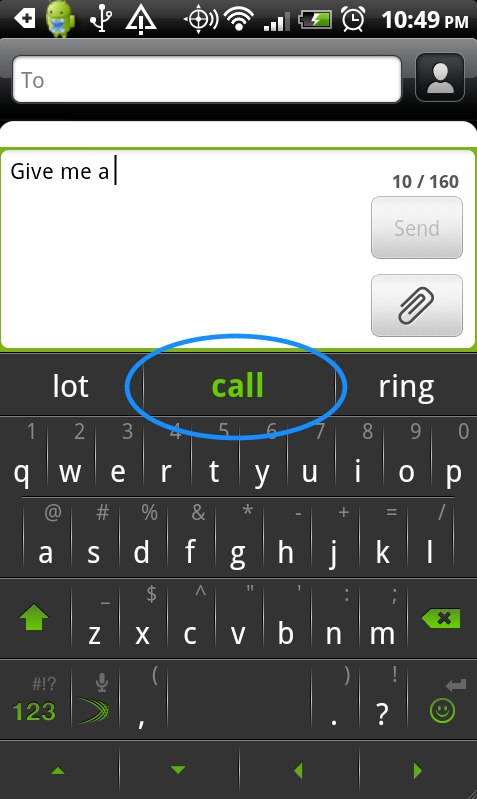Fat-finger typists rejoice! Finally, a smartphone keyboard for us

I had never really thought of myself as a "fat-finger" typist - until the first time I tried to hammer out a message on a Blackberry keyboard. I was all thumbs, so to speak. And over the years, it hasn't gotten much better.
Touch-screen keyboards kept the letters too close to each other for my fingers, which meant that every "B" ended up being an "N" while every "E" became and "R" and so on. And when auto-predict typing was added in, well, let's just say I had to send my share of follow-up text messages that started with "Sorry. What I meant to type was... "
The closest thing I'd had to a better system was the "Compact QWERTY" keyboard on the Blackberry Pearl, one that had two letters on each key - somewhere between a traditional QWERTY and the numeric, triple-tap keyboard. This compact QWERTY was on my Android smartphone and I thought I would use it forever. And then I heard about SwiftKeyX, a predictive typing app for Android.
I'm not big on writing about mobile apps and I certainly wasn't convinced that some $3.99 app was going to change my life. Boy, was I wrong. I'm officially hooked - and I would definitely pay $3.99 (or more) for this app.
Finally, here was a keyboard that seemed to understand the frustration that we fat-finger typists experience. The predictive technology to offer suggestions about what I'm trying to type is the best I've ever seen - and not because some pre-loaded dictionary understands how people communicate. SwiftKey has the ability to learn from all of the typing that you do on a smartphone - from your email account, your Facebook postings, your tweets and even your SMS text messages.
My Swiftkey keyboard knows, for example, that most of my text messages start with "Hola," "I," or "Hey" and prepopulates those words into three buttons at the top of the keyboard. The words in those buttons change dynamically based on what I'm typing and what word is most likely to be next. What's great is that the next word is automatically entered when I hit the space bar, creating a natural, uninterrupted flow. And that's not even what's most impressive.
My SwiftKey keyboard stores up to three languages in its memory, though it supports dozens more with the latest version. As such, it recognizes when I'm speaking "Spanglish," switching back and forth between English and Spanish the way I do with some of my friends. Even when my fat fingers tapped out "pkaua," the app knew that I probably meant "playa," the Spanish word for "beach." And it was right.
The app sells for $3.99 and is available only for Android at this point. Apple's closed system apparently isn't big on apps that take over key features of the iPhone, including its keyboard. That's unfortunate for iPhone users because this app is far and away better than anything I've seen in a touchscreen keyboard. The app, which is available in the Android Marketplace, also comes as a free 30-day trial, which is more than enough time to learn from your typing habits.
As an added bonus, the app also provides some analytics about your typing habits. In the couple of weeks that I've been using it, it tells me that I have become 30 percent more efficient, saving more than 5,000 keystrokes (probably mostly backspaces). It has corrected more than 1,300 (and counting) of my typos, predicted more than 100 of my next words and completed or corrected more than 850 of my typed words.
Fat fingers, remember?